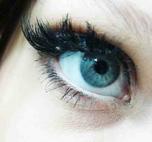 | ||||
Genetics & Heredity Review Questions
from Science Prof Online
Genetics & Heredity Review Questions
 | ||||
Genetics & Heredity
Practice Test Questions
These multiple choice and true/false questions are designed to help students practice and test their understanding of Genetics & Heredity.
 | ||||||
SPO VIRTUAL CLASSROOMS
1. Compare genotype to phenotype. What is the difference?
2. What are alleles?
3. What do homozygous and heterozygous mean?
4. Who was Mendel? Explain his contribution to science.
These are review questions from the Virtual Biology Classroom, designed to help students better understand the Anaerobic Respiration. They are based on materials that can be found on the Mendelian Genetics & Heredity Lecture Main Page.
5. Give an example of a potential genotype that underlies a dominant and a recessive phenotype of a trait (remember the bent finger examples and the other examples of simple inheritance that we covered in the Simple Inheritance Worksheet.)
6. Define Mendel’s three Laws: Dominance, Segregation and Independent Assortment.
7. Define the following genetic terms: character, trait, hybridization, true-bred, P generation, F1 and F2 generations.
SCIENCE PHOTOS
Page last updated 2/2016
 | ||||
Science Prof Online
has several
Virtual Classrooms
including:
(15 weeks)
(8 weeks)
(8-weeks)
(16 weeks)
8. In cartoon sponges "square pant" is a dominant trait and "no pants is recessive. If Sponge Bob, who is heterozygous for this trait gets busy with a "no pants" lady sponge, what are the genotypes and phenotypes of their potential offspring? Show this in a Punnett Square.
9. Compare and contrast incomplete dominance and co-dominance.
10. Explain ABO blood types. What blood type is best to have if you are receiving blood? What is the best blood type to have if you are donating blood? Why?





